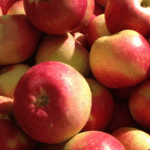You should alter the recipe you’re using if you’re trying to decide whether to give up your favorite dessert or break your diet. To reduce the fat content of your food, you can substitute applesauce for oil.
You Should Avoid These Oils
There are times when baking goods must be substituted due to necessity. There are times when you run out of a key ingredient, such as eggs or butter, which causes you to put off baking. Other substitutions are made to alter the taste, texture, or nutritional value of your food.
Many tasty treats contain oil, such as cake, brownies, and cookies. It adds moisture to your food, as well as a little flavor, depending on what kind you use. However, some oils are high in saturated fats and may raise your cholesterol levels, according to a May 2015 study published in the Journal of Nutrition.
Researchers discovered that palm oil, which is high in saturated fat compared to other vegetable oils, increases LDL (the “bad”) cholesterol. Nevertheless, other options, such as olive oil, which is low in saturated fat, do not significantly affect cholesterol levels.
According to a December 2018 study published in Maturitas, including olive oil in your diet can help protect against cancer and diabetes. Oils are not all bad for you, but they are all high in fat. You can use applesauce instead of oil in brownies and other desserts if you’re trying to reduce your fat intake.
Applesauce As A Substitute
A surprising number of baked goods can be made without oil when using applesauce instead. Bananas, prunes, and pumpkins can also be used. They all add different flavors to your food, so you should experiment with different ones.
You should use the same amount of applesauce as oil when substituting it. Replace one cup of oil in a recipe with one cup of applesauce. Applesauce can be overly moist, so you may want to drain some of the liquid first.
Aurora Health Care offers an excellent tip. To keep some fat in the recipe, you can use half applesauce and half coconut oil or butter. The combination is recommended for sweet baked goods, such as muffins.
NorthShore University HealthSystem recommends substituting applesauce for half of the fat in a recipe. If you use applesauce instead of oil in a cake, for example, you’ll lower the fat content and raise the carbohydrate content.
Applesauce and Apple Nutrition
According to the USDA, half a cup of unsweetened applesauce contains 13 grams of carbohydrates. By comparison, sweetened applesauce contains about 22 grams of carbs, depending on the brand.
You should choose the unsweetened version since apples contain natural sugars that will enhance the flavor of your dessert. It’s likely that you’ll add plenty of sugar to your baked goods to make them sweet.
Applesauce has fewer calories than oil or butter because it is lower in fat. Carbs have only 4 calories per gram, while fat provides 9 calories per gram. You could potentially reduce the calories in your baked goods by a significant amount.
Apples might not keep the doctor away, but eating them regularly has some health benefits. According to a study published in Public Health Nutrition in October 2016, eating apples could protect against cancers such as colorectal, breast and digestive tract cancers.
Health Benefits of Applesauce
Phytochemicals are antioxidants found in applesauce. Antioxidants may reduce your risk of cancer, diabetes, and heart disease. Fresh applesauce made from the whole fruit, including the skin, provides the most antioxidants.
Store-bought applesauce contains vitamin C. Ascorbic acid, which is added as a preservative, has a wide range of health benefits. In addition, it boosts your immune system, helps you absorb iron more effectively, and speeds up your body’s healing process. Muscle, blood vessels, and cartilage, the tough but flexible tissue at the ends of your bones, are all formed by calcium. Vitamin C is also needed to produce collagen, the most abundant protein in your body that gives your skin its strength and elasticity.
In addition to acting as an antioxidant, Vitamin C can also combat free radicals, which are dangerous substances that build up in the body. Your body produces them when it converts food into energy. Free radicals are also present in the air and can enter your body when you breathe. If they build up, they can damage your cells, increasing your risk of conditions such as heart disease, diabetes, cancer, and others. Antioxidants reduce your risk of developing these diseases by fighting free radicals.
We also have compiled a guide that will help you choose apples for applesauce, if your are looking for the best one.
Was this helpful?
Hi there! I’m a food enthusiast and journalist, and I have a real passion for food that goes beyond the kitchen. I love my dream job and I’m lucky enough to be able to share my knowledge with readers of several large media outlets. My specialty is writing engaging food-related content, and I take pride in being able to connect with my audience. I’m known for my creativity in the kitchen, and I’m confident that I can be the perfect guide for anyone looking to take their culinary journey to the next level.







![Preparing [champ chicken sausage] - raw sausages boiling in a pot and cooking in a pan.](https://milkwoodrestaurant.com/wp-content/uploads/2026/02/image-1-4-150x150.jpg)
